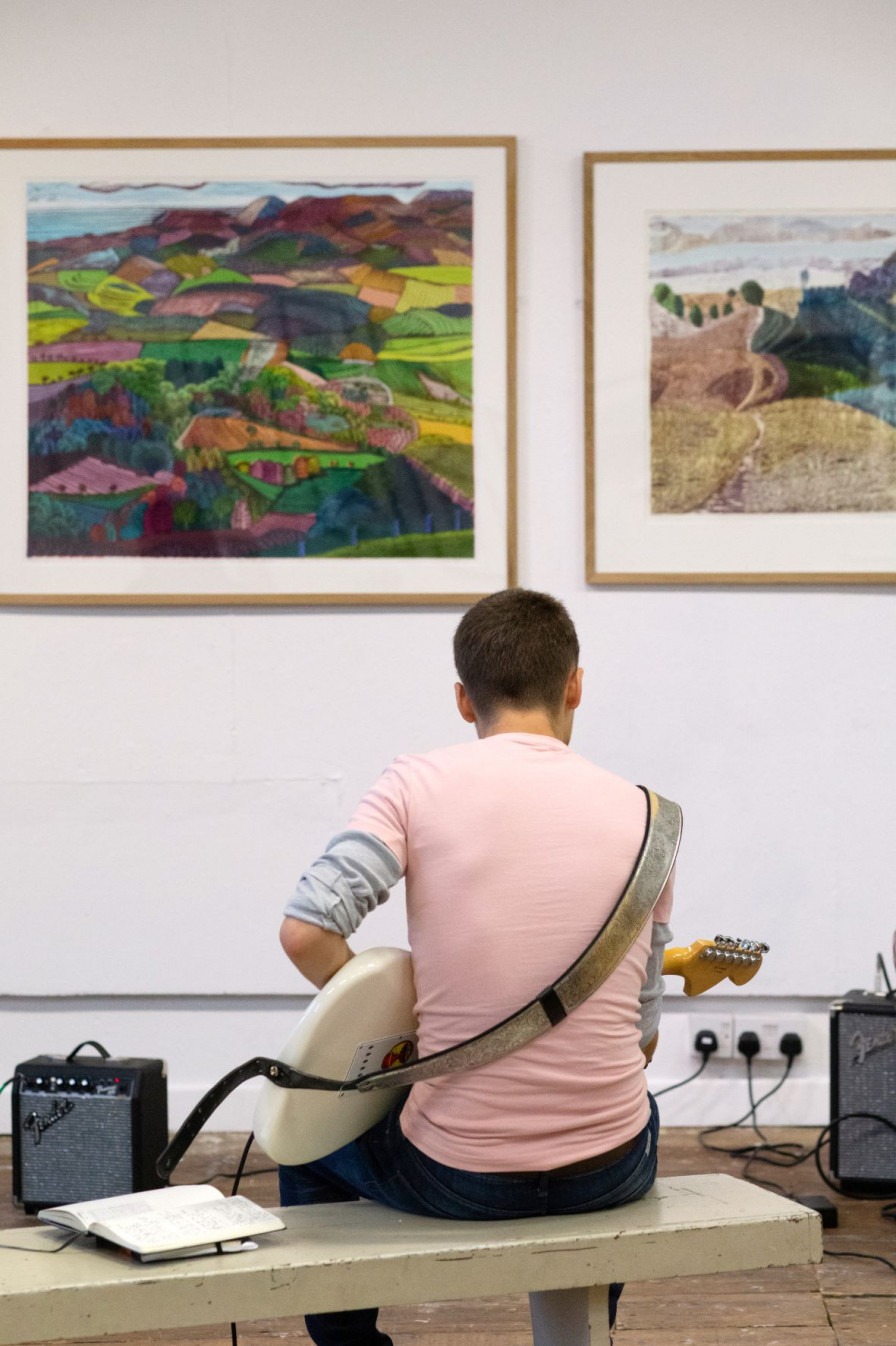How can young people living in rurally isolated areas be supported to take the first steps towards a career in the music industry?

To try and answer this question B Sharp ran a pilot project – MusicFutures – throughout 2021. This was funded by Thomas Deane Trust, with support from Bridport Arts Centre and Dorset Music Hub. This pilot project built on our Youth Music supported learning of how to meet the needs of young musicians in rural West Dorset.
MusicFutures aimed to support the young people from the West Dorset region, aged 15/16+ who are seriously interested in music, and are beginning to think about a music career. We wanted to work with young people who are not sure about how they can make steps into the industry, including those who don’t have connections to the industry or who are facing personal challenges.
We wanted to see if professional musicians, acting as mentors, could support young people to use the musical talent and skills they have developed in the wider world, and to help them see how they might connect to a musical career.
We wanted to try and address the accepted narrative for young people growing up in rurally isolated areas, such as West Dorset, with poor transport connections to college, FE/HE and cultural and social life, that the only way to progress in a creative career, is to do well enough academically to leave the area via higher education.
What we did
The programme was led by 3 local professional musicians in the role of music mentoring. They led group music making sessions, and provided individual mentoring and we arranged talks and workshops by visiting industry professionals.
Outcomes
The project helped the participants become more actively involved in music making, through which they developed their confidence, self-esteem, social skills and self-identity. Above all else, the participants valued the opportunity to make music with other young people who were seriously interested in music. They felt this improved their musical confidence and their social confidence – and they were more able to talk to people they didn’t know and to make new connections.
The young people felt they understood more about how they could use music as part of career, and they felt more confident to do so. This new confidence in the possibility of a music career seemed to be mainly due to their new personal confidence, rather than new understanding of where their own personal route into the industry might be.
What we learned
Please see the full report attached, but in brief - we learned that that there is need for this work, which can be met by working with music industry mentors through a supportive programme of group sessions, one to one mentoring and industry experiences. In order to be feasible in a rural area, the programme needs to be broad enough, and flexible enough to provide a useful experience to a wide cohort or talented and committed young musicians, who are at different stages of personal development and career understanding.
This is because, in a rural area such as this there are not sufficient numbers of young people at exactly the same point in their development and musical lives, to run viable programmes that require young people to fit very tight musical and developmental criteria. Our participant cohort had a wide range of needs, and were at very differing levels of personal and musical development, despite all sharing a strong commitment and interest in music making. This meant the programme had to expand in flexibility, and the Music Mentors had to be extremely individual in their approach to meet everyone’s needs. The flexible and individual approach was effective - participants whatever stage of development, progressed through the programme, and benefited from the group sessions, learning about the industry, and support from Music Mentors.
We would be really interested in sharing learning with other organisations who are aiming to support young people in rural areas to access music industry careers. Please do contact info@bsharp.org.uk

